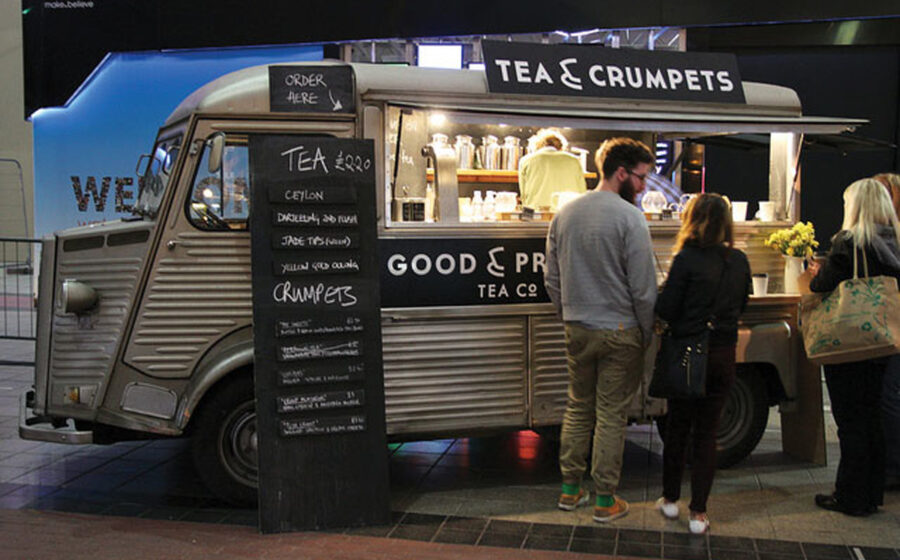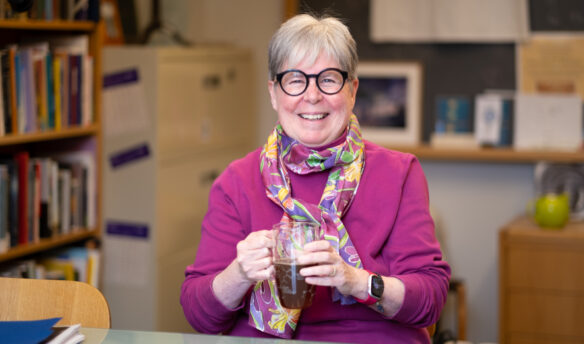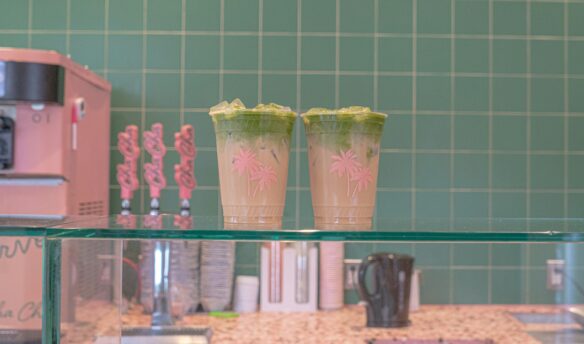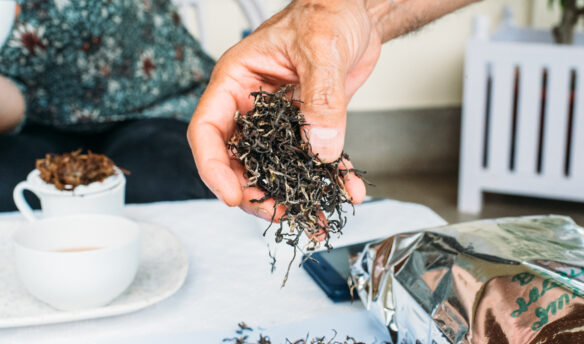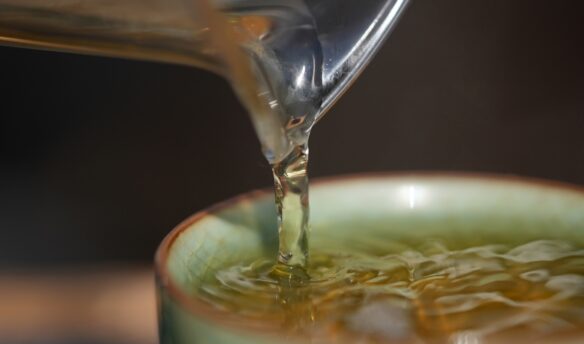[T]here is nothing more British than tea. Emilie Holmes knew this, but she also knew London was lacking in good, properly prepared tea; the city was stuck in a rut of teabags and supermarket CTC.
Primed by an early exposure to tea cultivation (she lived in India as a child and recalls visiting plantations there), in her early twenties Holmes started looking deeper into tea’s roots and quickly became preoccupied with Britain’s lackluster tea offerings. It seemed a shame that a culture celebrated as “tea-drinking” would enjoy such a rich third wave in coffee, but fail to advance the beverage on which it was built.
When the frustration became too much to bear, Holmes set out to fix the problem herself. She began sourcing teas from China, India, and Africa and cooked up a plan to re-introduce tea to Londoners in a style that is especially British, albeit uncommon. Her business, Good & Proper Tea, serves single-estate, loose-leaf teas and artisan crumpets out of a retrofitted, classic 1974 Citroën-H van dubbed, fittingly, Watson. The mobile brew bar allows Holmes to peddle her carefully sourced teas across London in a flexible and eye-catching way. Watson can be spotted at King’s Cross or the Brockley Market, with Holmes timing a row of rich Assams, second flush Darjeelings, and exquisite green teas. Keeping things familiar, she doesn’t shy from tea with milk and toasts up outstanding crumpets alongside homemade cakes and jams.
With the country’s tea culture on the cusp of a rebirth, Holmes and Watson are working diligently on the mystery of London’s so-so cuppa. We spoke to her about her van and her plan.
Q: Where did the idea for Good & Proper originate?
A: The whole thing was originally based on my own personal frustration. It’s an extraordinary thing that although in Britain we’re famous for tea, and all we drink is tea, and forty percent of what we have in our body at a given time is tea, there strangely is nowhere to get a decent cup of tea when you’re out and about. We’re sort of stuck in the instant coffee era of tea here, and it’s always slightly baffled me . . . I didn’t understand how I was being given something with a floating teabag in it, yet the person I’m with is being given this amazing, barista-crafted coffee. I guess from there it became a bit of an obsession.
Q: Why a van and not a tea shop?
A: The van was my low-risk way of funding this venture, and I thought, if I can get a van I can learn as I go. Just because no one is really doing tea in England, so I didn’t know if everyone would hate it. I thought getting a shop might be crazy. I then bought Watson and turned to Kickstarter and put my idea to the world, and the world was kind to me.

Q: What are the advantages of having a mobile business?
A: The obvious advantage of the van is your overheads are low, so if times are slightly tough, you just don’t trade. If I’m not trading I’m not paying, whereas in a shop you’re desperately fighting to pay your rent and have to put in as many hours as you can. The flexibility of the van is great and much less scary for a new business.
Q: What is the next phase of Good & Proper?
A: I always thought the answer to that question was “a tea shop,” and I think that’s still the case. The problem with the van is that it’s basically only takeaway, and takeaway is such a difficult thing with tea because a lot of the culture that surrounds tea is about sitting and having a cup of tea. But having a space where people can come in, I can get the tins down from the shelf, they can smell the tea, see it, touch it, buy a pack of tea to take home, sit down. The whole experience is something I really want to be able to do.

Q: Are Londoners getting more excited about good tea?
A: It’s very much happening right now. Every single magazine and newspaper in England is talking about how “something is happening in tea,” there are more and more boutique tea companies appearing, but there is just still such a long way to go to where coffee is. It’s just going to take time. And coffee will help, actually, because people are becoming more discerning about what they like anyway.
Q: Are there any teas your customers favor?
A: The vast majority of my sales are still what people call breakfast tea. Most people will just say, can I have a “tea,” and I know they mean a black tea with milk. I don’t want to scare them off, so I say, “Absolutely, our breakfast tea today is an Assam or a Kenyan,” and I give it to them, and hopefully they come back and say, “That was a really good cup of tea.” And that’s kind of my ideal customer, even more so than the discerning person that wants to drink a delicious hand-rolled oolong. That’s great, but almost the most exciting customer is the person that really doesn’t care, but you give them something better, you tell them what it is, and suddenly they’re engaged and they’re like, “Oh—that was much better than a normal cup of tea.” I love being able to share that moment with someone, when they kind of suddenly decide they do like [that tea] more. Or even better, when I win a coffee drinker over.
—Regan Crisp is Fresh Cup’s associate editor.



